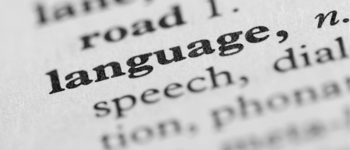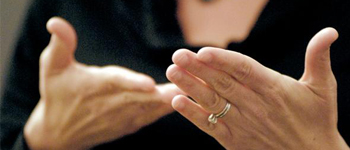The Department of Linguistics Diversity Statement
The Department of Linguistics at UNM recognizes the value and importance that diverse perspectives can bring to our academic community. Our department strives to create an atmosphere of inclusiveness and respect for undergraduate and graduate students, as well as for faculty and staff. We are firmly committed to continued recruitment and retention of scholars and staff from historically underrepresented groups in our department and field, including, among others: women, members of the LGBTQ+ community, Native American peoples, members of the Deaf community, racial and ethnic minorities, and scholars from developing nations.
In the past few years, UNM Linguistics has taken concrete steps to meet its diversity goals in several areas. We have increased representation from the Deaf community through the hire of faculty members within both the Sign Language Interpreting Program and the linguistics program at large. Additionally, we have recently hired Diné faculty in an effort to strengthen our Navajo Language Program. We are currently working on other initiatives that focus on increasing enrollment of Hispanic, African American, Native American, Deaf as well as other minority students in Linguistics as a whole.
In line with its mission to create and maintain a diverse community in which students, faculty and staff can thrive, free from any sort of harassment, intimidation, discrimination or retaliation, each semester UNM Linguistics appoints a graduate student who will assist the department in achieving its diversity goals by serving as Diversity Liaison. The current Diversity Liaison is Ivette S. González. Please send any questions or comments to diversityling@unm.edu
Resources
UNM-specific Resources
AISS - American Indian Student Services: provides cultural and academic programming for American Indian students attending UNM in an effort to ensure their academic achievement and assist in the development of personal, cultural, and social success.
AFRO - African American Student Services:provides culturally relevant programs designed to assist primarily African American students in making a confident transition and successful adjustment to UNM.
ARC - Accessibility Resource Center: provides comprehensive resources to the University community (faculty, staff, and student) in order to create equitable, inclusive, and practical learning environments.
Division for Equity and Inclusion: fosters inclusive excellence by bringing together diverse worldviews and research ideas and encourages multiple ways of teaching, learning and knowing.
El Centro de la Raza: promotes the transformation of Latino students through knowledge and skills, offering support while challenging systems to achieve social justice.
LGBTQ Resource Center: offers a welcoming physical environment for LGBTQ+ students and faculty; promotes safety, education, and advocacy; and offers support services and trainings.
Lobo Respect Advocacy Center: works to prevent and respond to sexual misconduct in the campus community by providing support and services for victims as well as programs designed to prevent sexual misconduct in the first place.
OEO - Office of Equal Opportunity: promotes equal access and treatment and a safe environment free of discrimination and inequity for all.
Undocumented UNM: offers a range of support services, from academic and personal counseling to financial aid and legal advising, to help undocumented students balance being full-time students while handling other day-to-day challenges they may face.
Women's Resource Center: promotes awareness and the advancement of women’s rights to ensure equity regardless of gender identity, sex, race, ability status, age, sexual orientation, economic class, or religious affiliation.
Community-wide Resources
DCCNM - Deaf Culture Center of New Mexico: is non-profit organization in Albuquerque that provides arts, culture, social, and recreational services and residential living units for the Deaf, Hard of Hearing, and Deaf-Blind residents.
UNM Truman Health Services: provides treatment and a wide variety of services for people living with HIV and their families, including, gay and bisexual men and members of the transgender community.
Professional Resources
Linguistic Society of America, Committee on Ethnic Diversity in Linguistics (CEDL)Linguistic Society of America, Natives4Linguistics Special Interest Group
Linguistic Society of America, Committee on the Status of Women in Linguistics (COSWL)
Linguistic Society of America, Committee on LGBTQ+ [Z] Issues in Linguistics (COZIL)



